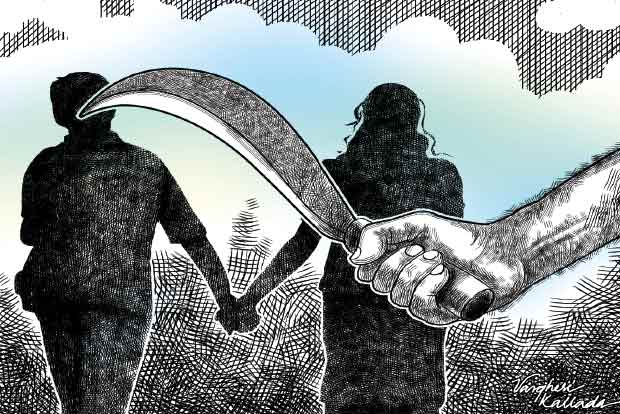“Nonviolence doesn’t always work – but violence never does” – Madge Micheels-Cyrus
Honor killing is a chilling practice where family members, mostly women, are murdered to protect the family’s so-called honor. This brutal act is often justified by perceived offences like eloping, engaging in love marriages, or other behaviours considered shameful. Tragically, around 5,000 people, primarily women, are killed each year worldwide under the guise of “honor killing,” with a significant number of these deaths occurring in India. The situation is deteriorating in India, particularly due to love marriages, which underscores the urgent need for strict laws and their effective enforcement to tackle this grave injustice.
The Harmful Impact of Honor Killing
Honor killings inflict deep pain and suffering not just on the victims’ families but on society as a whole. The repercussions include:
- Fear and trauma among siblings who might worry about becoming victims themselves can stifle their personal growth and potential.
- As communities grapple with the violence these acts engender, social unrest and division.
- Young people may come to view honor killing as a misguided solution to problems involving women, perpetuating a cycle of violence.
- An increase in suicides as people succumb to the pressures and threats associated with honor killings.
- This is a setback in the progress toward gender equality, reinforcing the marginalization of women in society.
Statistical Insights
A report from the India Democratic Women’s Association reveals that around 900 honor killings occur annually in Punjab, Haryana, and Uttar Pradesh, with another 300 reported elsewhere in India. In Pakistan, the Human Rights Commission’s 2009 report documented 647 honor killings, which increased day by day and year by year. A National Commission of Women’s survey found that 92% of people in northern India reject honor killings and related crimes, reflecting growing disapproval of such practices.
Why Honor Killings Happen
Several factors contribute to the tragic phenomenon of honor killings:
- The devaluation of women in society.
- Marital infidelity.
- Premarital sex.
- Inter-caste marriages.
- Social status issues arising from love marriages.
- Seeking a divorce from an abusive partner.
One heart-wrenching example is Nirupama Pathak, a 22-year-old journalist found dead in April 2010. Although her family claimed she had committed suicide, the autopsy revealed she was murdered due to her pregnancy from a relationship. Her story highlights the severe consequences of honor-based violence.
The best example is that of Ramayana, where Ravan’s sister, Surpnakha had done ‘Gandharva Vivah’ with army chief ‘Viduth Julvey’ in a place called ‘Kalikey’. Ravan took it as an insult to his family, so to maintain his respect, he killed her husband. Thus, honor killing has been prevalent since ancient times and needs a full stop to be put to it.
Addressing Honor Killing
In today’s world, where societal norms have evolved, it’s crucial to understand that actions like premarital sex or inter-caste love marriages should never lead to violence. Society must recognize that there is no honor in honor killings and that such brutal practices have no place in a modern, compassionate world.
To combat honor killings, we must:
- Implement and enforce stringent laws to protect women from such violence.
- Impose severe penalties on those who commit these heinous acts.
- Raise awareness to convey that honor killings are a grave injustice, not a cultural norm.
- Provide education, especially in rural areas, to inform people about the devastating impacts of honor killings.
- Ensure safety and protection for women who are at risk.
- Take decisive action against Khap Panchayats and similar groups that support or condone honor-based violence.
Conclusion
Honor killings are a tragic and destructive practice that has caused immense harm. Families need to understand that taking the life of a loved one can never preserve honor and is never justified. In the 21st century, if we trust an 18-year-old to vote, we must also trust them to make personal life decisions and deserve to live freely. Initiatives like the “Lovers’ Party,” organized in Meerut, Uttar Pradesh, in August 2010, show hope for change. Young people coming together to oppose caste councils that endorse honor killings is a step toward a more just and humane society.
Ultimately, honor killing is a grave offence that requires harsh penalties to prevent further tragedies. By taking a stand against this practice, we can move toward a future where honor is defined by compassion and respect, not violence.

